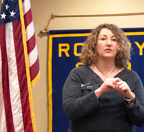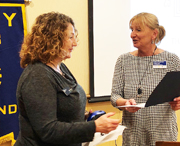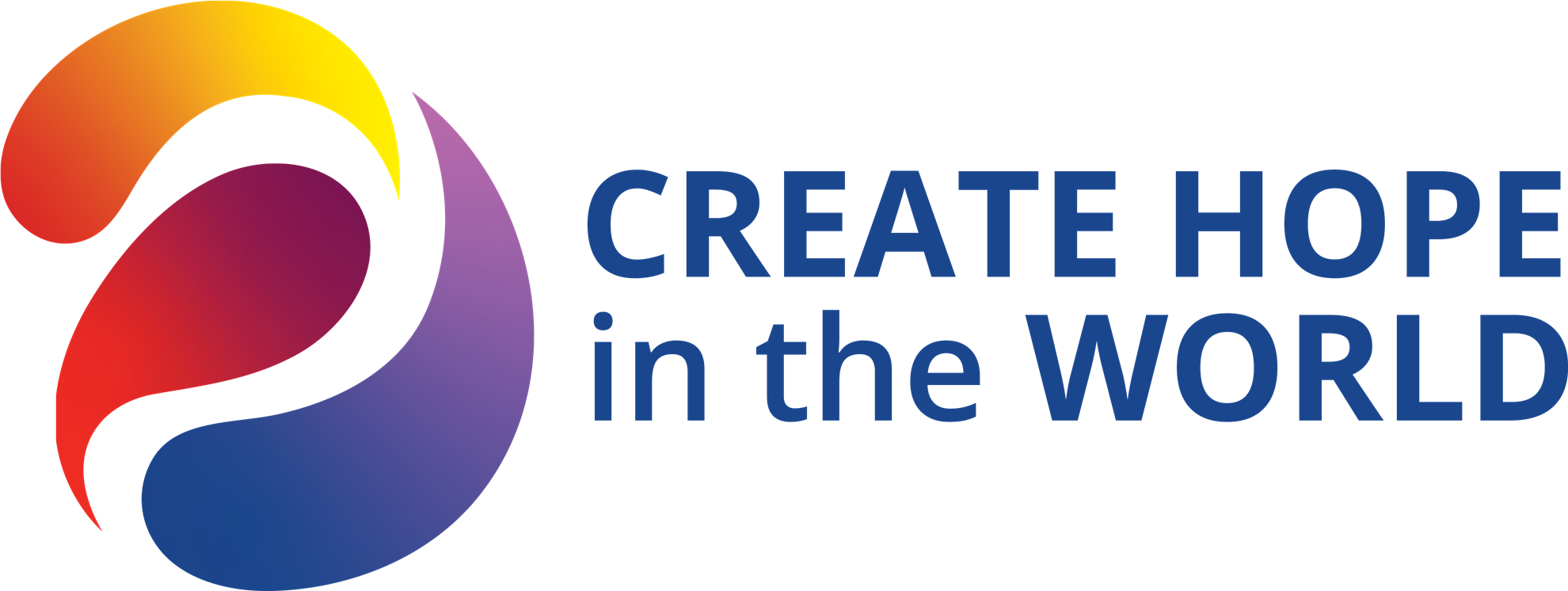 Nicole Avery is the Executive Director of Big Brothers and Big Sisters of Southern Maine (BBBS). Nicole presented many ways a “Big” can help a child and the community. Children lucky enough to have a Big are shown to be 46% less likely to try drugs, 27% less likely to use alcohol, and 52% less likely to skip school. Kids with mentors are more confident, have higher aspirations, are more likely to do well in school and avoid risky behaviors.
Nicole Avery is the Executive Director of Big Brothers and Big Sisters of Southern Maine (BBBS). Nicole presented many ways a “Big” can help a child and the community. Children lucky enough to have a Big are shown to be 46% less likely to try drugs, 27% less likely to use alcohol, and 52% less likely to skip school. Kids with mentors are more confident, have higher aspirations, are more likely to do well in school and avoid risky behaviors. Of the youth BBBS serve:
- 6% have a parent in prison;
- 65% come from a single parent home and,
- 33% live near the poverty level.
BBBS tries to match children (Littles) facing adversity, to a caring stable 1:1 relationship with a non-parent adult for support. They believe every child deserves a chance, and their Big/Little matching methods have proven to help the Big be another source of stability in a child’s life. Bigs become trusted allies, good listeners, and a caring adult friend…..they are not a social worker, a psychologist or a baby sitter.
Nicole told us how a person becomes a Big. The Big goes through a screening process, a background reference check, and some training (not unlike a sports coach these days). BBBS will help the Big create a plan on their own with the parent or guardian engaged. Bigs typically meet with their Littles about 2-4 times per month. Some Big/Little matches meet individually, and others meet in larger groups with some pre-planned activities. The average match time is approximately 15 months, and the Bigs are asked to commit to a minimum of one year. BBBS has found that shorter terms, like 4 months, can cause the child to have a feeling of loss or abandonment and be worse for a child than good. To limit potential short-term relationships, BBBS conducts a significant and intensive match evaluation process to ensure the relationship will work out. BBBS focuses on the well-being and safety of the child, and that is what makes the Big/Little relationships so strong.
Nicole asked us to compare whether resources of less than $3,000 per year per match compare to the approximately $225,000 per year spent if a child spends a year in a juvenile detention center?
So what can you do to support BBBS?
- Become a Big
- Be an ambassador
- Donate (and double your support through a matching grant)
Contact BBBS and find out more at: www.somebigs.org

(Photo: Nicole Avery and President Amy Chipman)
